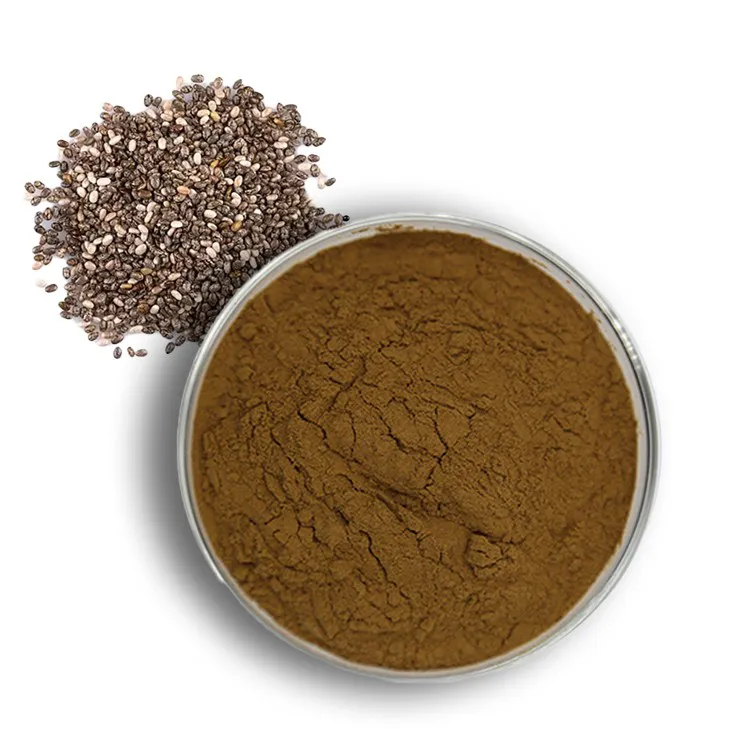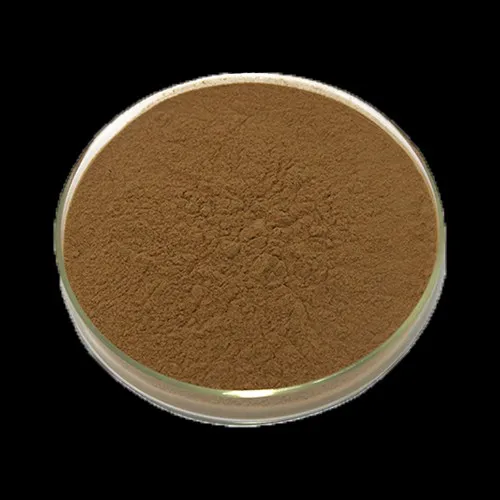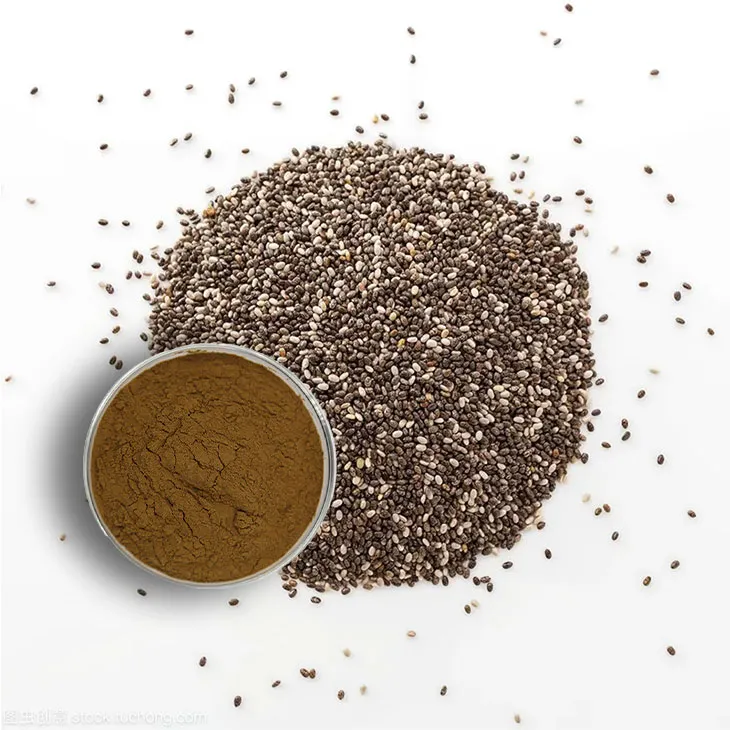- 0086-571-85302990
- sales@greenskybio.com
Use chia seed powder? Make sure you source from sustainable suppliers!
2024-12-20

1. Introduction to Chia Seeds and Chia Seed Powder
Chia seeds have gained significant popularity in recent years, and for good reason. These tiny seeds are a nutritional powerhouse. Originating from the Salvia hispanica plant, chia seeds are rich in omega - 3 fatty acids, fiber, protein, and various minerals such as calcium, phosphorus, and magnesium.
Chia Seed Powder, which is made by grinding chia seeds, offers a convenient way to incorporate the benefits of chia seeds into our diet. It can be easily added to smoothies, baked goods, cereals, and more. However, as the demand for Chia Seed Powder rises, it is crucial to consider the source of these products.

2. The Importance of Sustainable Sourcing
2.1 Environmental Protection
Sustainable sourcing of chia seed powder is essential for environmental protection. Chia plants are typically grown in specific regions with particular environmental conditions. When suppliers are sustainable, they are more likely to use agricultural practices that are friendly to the environment.
For example, sustainable farming of chia seeds may involve reducing the use of pesticides and fertilizers. Pesticides can have harmful effects on local ecosystems, including contaminating water sources and harming beneficial insects. By minimizing pesticide use, sustainable suppliers help protect the biodiversity of the areas where chia is grown.
Furthermore, sustainable farming practices may also include proper soil management. Chia plants require healthy soil to grow well. Sustainable suppliers may use techniques such as crop rotation and composting to maintain soil fertility. This not only benefits the chia plants but also helps prevent soil erosion and degradation, which are significant environmental concerns.
2.2 Fair Trade for Farmers
Another important aspect of sustainable sourcing is fair trade for farmers. When we source chia seed powder from sustainable suppliers, we are more likely to support farmers who are treated fairly.
Fair trade means that farmers receive a reasonable price for their products. In many non - sustainable supply chains, farmers may be exploited by middlemen or large corporations. They may be paid very low prices for their chia seeds, despite the hard work and resources they have put into growing them.
With sustainable suppliers, there are often mechanisms in place to ensure that farmers are paid fairly. This may include direct trade relationships, where farmers can sell their products directly to the suppliers or through cooperatives. Fair prices for farmers not only improve their economic well - being but also encourage them to continue growing chia seeds in a sustainable manner.
Moreover, fair trade also involves providing farmers with support in other areas. For example, sustainable suppliers may offer training to farmers on better farming techniques, which can help increase their yields and improve the quality of their chia seeds. They may also assist farmers in accessing markets, which is especially important for small - scale farmers who may not have the resources or connections to do so on their own.
2.3 High - Quality Products
Sustainable sourcing is closely linked to high - quality chia seed powder. When suppliers follow sustainable practices, they are more likely to produce high - quality products.
For instance, sustainable suppliers may be more careful in the harvesting and processing of chia seeds. They will harvest the seeds at the optimal time to ensure maximum nutrient content. In the processing stage, they may use clean and modern equipment to grind the seeds into powder, reducing the risk of contamination.
Also, sustainable suppliers are often more committed to quality control. They may conduct regular tests on their chia seed powder to check for factors such as purity, nutrient levels, and freshness. This ensures that consumers receive a product that is not only nutritious but also safe to consume.

3. How to Identify Sustainable Suppliers
3.1 Look for Certifications
One of the most straightforward ways to identify sustainable suppliers is to look for relevant certifications. There are several certifications that indicate sustainable and ethical practices in the chia seed industry.
For example, organic certifications are a good sign. Organic - certified chia seed powder means that the chia seeds were grown without the use of synthetic pesticides and fertilizers. This is beneficial for both the environment and consumers' health.
Another important certification is Fair Trade certification. As mentioned earlier, Fair Trade ensures that farmers are treated fairly in the supply chain. Suppliers with Fair Trade certification are more likely to have ethical sourcing practices.
However, it is important to note that not all certifications are equally reliable. Some certifications may be easier to obtain or may not be as strict in their requirements. Therefore, it is advisable to do some research on the specific certification and the organization that issues it.
3.2 Research the Supplier's Reputation
In addition to certifications, researching the supplier's reputation is crucial. You can start by looking at online reviews and testimonials from other customers.
Positive reviews may indicate that the supplier provides high - quality products and good customer service. On the other hand, negative reviews may raise red flags, such as issues with product quality, delivery times, or ethical concerns.
You can also look into the supplier's history and track record. How long have they been in business? Have they had any previous issues with sustainability or ethical practices? A supplier with a long - standing good reputation is more likely to be a reliable and sustainable source.
3.3 Inquire about Their Sourcing Practices
Don't be afraid to directly inquire about a supplier's sourcing practices. A sustainable supplier should be transparent about where they source their chia seeds from.
Ask questions such as: Are the chia seeds sourced from local farmers? Do they have any initiatives to support sustainable farming in the regions where the chia is grown? How do they ensure fair prices for farmers?
If a supplier is hesitant or unable to answer these questions clearly, it may be a sign that their sourcing practices are not as sustainable as they claim.

4. The Consequences of Not Sourcing from Sustainable Suppliers
4.1 Environmental Degradation
If we do not source chia seed powder from sustainable suppliers, there can be significant environmental consequences. Non - sustainable farming practices may lead to increased use of pesticides and fertilizers, which can contaminate soil, water, and air.
This can have a negative impact on local ecosystems, including harming wildlife, plants, and beneficial insects. In the long run, it can also lead to soil degradation, reduced water quality, and a loss of biodiversity in the regions where chia is grown.
4.2 Unfair Treatment of Farmers
Not sourcing from sustainable suppliers may also result in the unfair treatment of farmers. Without the support of sustainable supply chains, farmers may be forced to accept low prices for their chia seeds.
This can lead to financial hardship for farmers and their families. In some cases, it may even force farmers to abandon chia farming, which can have a negative impact on local economies and food security.
4.3 Lower - Quality Products
Non - sustainable suppliers may be more focused on cost - cutting rather than quality. They may use inferior farming and processing methods, which can result in lower - quality chia seed powder.
For example, they may harvest the chia seeds too early or too late, resulting in a lower nutrient content. They may also use unclean or outdated equipment in the processing stage, increasing the risk of contamination.
5. Conclusion
In conclusion, when using chia seed powder, it is of utmost importance to source from sustainable suppliers. Sustainable sourcing not only protects the environment but also ensures fair trade for farmers and high - quality products for consumers.
By taking the time to identify sustainable suppliers through looking for certifications, researching their reputation, and inquiring about their sourcing practices, we can make a positive impact. We can contribute to the well - being of the environment, the livelihoods of farmers, and our own health by choosing chia seed powder from sustainable sources.
FAQ:
Q1: Why is it important to source chia seed powder from sustainable suppliers?
It is important because sustainable sourcing ensures environmental protection. It helps in conserving natural resources and reducing the negative impact on the ecosystem. Also, it guarantees fair trade for farmers, which means they get a fair price for their produce. This, in turn, supports the local economy. Moreover, sustainable suppliers are more likely to provide high - quality products as they follow ethical and proper farming and production practices.
Q2: How can one identify a sustainable supplier of chia seed powder?
One can look for certifications such as Fairtrade or Organic certifications. A sustainable supplier is likely to be transparent about their farming and production processes. They should be able to provide information about where the chia seeds are sourced from, how they are grown (for example, if they use sustainable farming methods like crop rotation), and how they process the seeds into powder. Additionally, positive reviews from other customers regarding the quality and ethical practices of the supplier can also be an indicator.
Q3: Are chia seeds from sustainable sources more expensive?
Not necessarily. While in some cases, the initial cost might seem higher due to the additional efforts and ethical practices involved in sustainable sourcing, in the long run, it can be cost - effective. Sustainable farming practices can lead to better yields over time, which may offset any potential price differences. Also, by supporting sustainable suppliers, consumers are contributing to a more stable and ethical market, which can have positive economic implications for all stakeholders.
Q4: What are the environmental benefits of sourcing chia seed powder from sustainable suppliers?
Sustainable suppliers often use farming methods that are less harmful to the environment. For example, they may use less pesticides and fertilizers, which reduces soil and water pollution. They may also practice water conservation techniques. Additionally, sustainable farming can help in maintaining biodiversity. For chia seeds, sustainable sourcing can ensure that the land used for cultivation remains fertile and suitable for future chia seed production without causing long - term damage to the ecosystem.
Q5: Can non - sustainable chia seed powder be of the same quality?
It is possible for non - sustainable chia seed powder to have a similar appearance and basic nutritional content. However, there are other factors to consider. Non - sustainable sources may use unethical farming or production practices such as overusing chemicals or exploiting farmers. This can potentially lead to hidden quality issues. For example, chemical residues may be present in the powder. Also, in the long term, non - sustainable sources may not be able to maintain consistent quality as they may deplete the soil or face issues related to unethical labor practices.
Related literature
- Sustainable Sourcing of Superfoods: The Case of Chia Seeds"
- "The Impact of Sustainable Farming on Chia Seed Quality"
- "Ethical and Sustainable Supply Chains in the Chia Seed Industry"
- ▶ Hesperidin
- ▶ Citrus Bioflavonoids
- ▶ Plant Extract
- ▶ lycopene
- ▶ Diosmin
- ▶ Grape seed extract
- ▶ Sea buckthorn Juice Powder
- ▶ Fruit Juice Powder
- ▶ Hops Extract
- ▶ Artichoke Extract
- ▶ Mushroom extract
- ▶ Astaxanthin
- ▶ Green Tea Extract
- ▶ Curcumin
- ▶ Horse Chestnut Extract
- ▶ Other Product
- ▶ Boswellia Serrata Extract
- ▶ Resveratrol
- ▶ Marigold Extract
- ▶ Grape Leaf Extract
- ▶ New Product
- ▶ Aminolevulinic acid
- ▶ Cranberry Extract
- ▶ Red Yeast Rice
- ▶ Red Wine Extract
-
Okra Extract
2024-12-20
-
Motherwort Extract
2024-12-20
-
Kelp Extract Powder
2024-12-20
-
Black Rice Extract
2024-12-20
-
Sophora Flavescens Root Extract
2024-12-20
-
Hesperidin
2024-12-20
-
Garcinia Cambogia Extract
2024-12-20
-
Lotus leaf extract
2024-12-20
-
Eucommia Ulmoides Extract
2024-12-20
-
Grape Seed Extract
2024-12-20





















